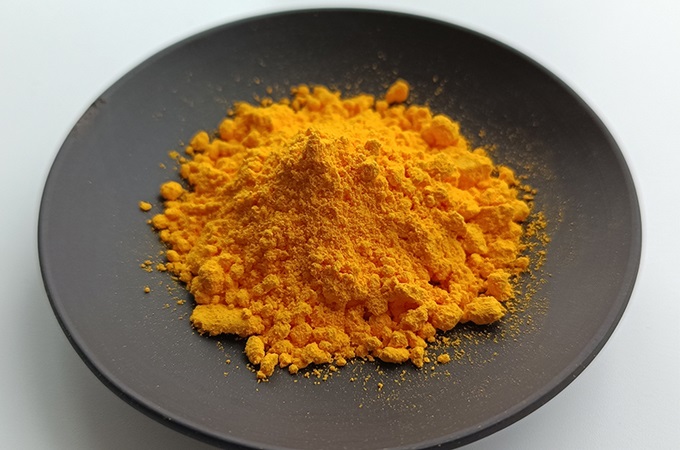2025-11-15
Coenzyme Q10 (CoQ10) is a naturally occurring antioxidant that plays a key role in energy production within cells. While it's often celebrated for its cardiovascular benefits and anti-aging properties, CoQ10's impact on pregnancy and fertility is gaining increasing attention. This article delves into how CoQ10 influences egg quality, its safe dosages during pregnancy, potential risks, insights from various studies on fertility benefits, and natural food sources. Whether you're considering starting a family or enhancing your reproductive health, understanding CoQ10's role can be valuable.
As women age, the quality of their eggs tends to decline due to factors such as oxidative stress and mitochondrial dysfunction. Coenzyme Q10 may support egg quality improvement by boosting mitochondrial performance. This is crucial as mitochondria supply the energy needed for embryo development. Studies indicate that supplementing with CoQ10 can enhance energy production in egg cells, leading to better fertilization rates and embryo health.
| Age Range | Benefits of CoQ10 |
| 35-40 years | Improved mitochondrial function |
| 40+ years | Increased fertilization rates |
While results can vary, the potential for CoQ10 benefits makes it a promising non-invasive option for those with age-related fertility concerns.

The integration of CoQ10 into a pregnancy or pre-pregnancy supplement regimen should be approached with guidance from a healthcare professional. While exact optimal dosages can vary, most studies suggest that safe CoQ10 dosages range from 100 to 200 mg per day during pregnancy. It's important to balance CoQ10 intake with other essential nutrients within a q10 multivitamin or targeted liquid supplement. Prenatal supplements often combine CoQ10 with additional health and wellness supplements to support maternal health.
Consulting with healthcare providers ensures that supplementation aligns with individual nutritional needs and avoids any potential undue stress on the body.
Although generally considered safe, there are potential risks associated with excessive CoQ10 consumption. High doses have been linked to gastrointestinal issues such as nausea and diarrhea. Additionally, there is limited data on its impact when taken during certain stages of pregnancy, necessitating a cautious approach.
Recommended not to exceed 300 mg daily, unless under professional supervision
Discontinue use if any adverse symptoms occur
Monitor interaction with other medications
For those taking multipurpose supplements like multivitamin with coenzyme Q10, focusing on total daily intake is crucial to preempt any nutrient overloading while benefitting from a wide array of nutri supplements.

Emerging research underscores the fertility-enhancing potential of CoQ10 supplementation. One pooled analysis found a notable increase in pregnancy rates among women who were supplemented with CoQ10 alongside other interventions. Another study observed that men, too, may experience improved sperm motility and concentration with regular CoQ10 intake.
| Group | Observed Benefit |
| Women | 15% increase in pregnancy rates |
| Men | Better sperm motility |
While promising, it's essential to approach these findings with realistic expectations and consider ComQ10 as part of a holistic fertility plan that encompasses lifestyle modifications and routine medical evaluations.
For those preferring to derive CoQ10 benefits from diet, certain foods can serve as excellent sources. Organ meats (such as liver and kidney), fatty fish, and whole grains are rich in CoQ10. Incorporating these foods into meals, along with fish oil and gout-friendly options, can contribute to maintaining healthy CoQ10 levels.
| Food Source | CoQ10 Content (mg per serving) | Additional Benefits |
|---|---|---|
| Beef Liver | 2.6 mg | Rich in iron and vitamins |
| Fatty Fish | 1.5 mg | Omega-3 fatty acids |
| Whole Grains | 0.5 mg | Dietary fiber |
Balancing natural intake with liquid probiotics and capsule manufacturing company's offerings ensures a well-rounded approach to maintaining overall health and optimizing fertility.
Enriching your understanding of CoQ10 and its impact on fertility highlights the antioxidant's potential as part of a comprehensive reproductive health strategy. From recognizing its role in enhancing egg and sperm quality to considering safe supplementation practices, the pursuit of healthy conception can be bolstered by informed choices. Whether benefiting from natural food sources or exploring supplementation, consulting with healthcare professionals ensures tailored guidance. Stay abreast of ongoing research and trust in capsule manufacturer advancements to navigate fertility journeys with confidence and clarity.
 OriginBio Nutraceutical Manufacturer For European BrandSeptember 28, 2025The European nutraceutical market is one of the most strictly regulated and quality-driven in the world. Brands entering or expanding within this market require a manufacturing partner that understand...view
OriginBio Nutraceutical Manufacturer For European BrandSeptember 28, 2025The European nutraceutical market is one of the most strictly regulated and quality-driven in the world. Brands entering or expanding within this market require a manufacturing partner that understand...view Anti-Aging Whitening Pills: Why Private Label Manufacturers Are the Right ChoiceSeptember 28, 2025Explore the essential magnesium ingredients for sports nutrition that support performance, recovery, and muscle health. Learn about the sources, manufacturing process, dosage, and customization option...view
Anti-Aging Whitening Pills: Why Private Label Manufacturers Are the Right ChoiceSeptember 28, 2025Explore the essential magnesium ingredients for sports nutrition that support performance, recovery, and muscle health. Learn about the sources, manufacturing process, dosage, and customization option...view Wholesale Resveratrol Clear Capsules OEM Private Label Manufacturer For FormulaSeptember 2, 2025wholesale resveratrol clear capsules with OEM and private label manufacturing, OriginBio offers high-purity resveratrol sourcing...view
Wholesale Resveratrol Clear Capsules OEM Private Label Manufacturer For FormulaSeptember 2, 2025wholesale resveratrol clear capsules with OEM and private label manufacturing, OriginBio offers high-purity resveratrol sourcing...viewInterested in our supplements? Get your personalized quote now!
 Call us on:
Call us on:  Email Us:
Email Us:  Office Add:
Office Add: